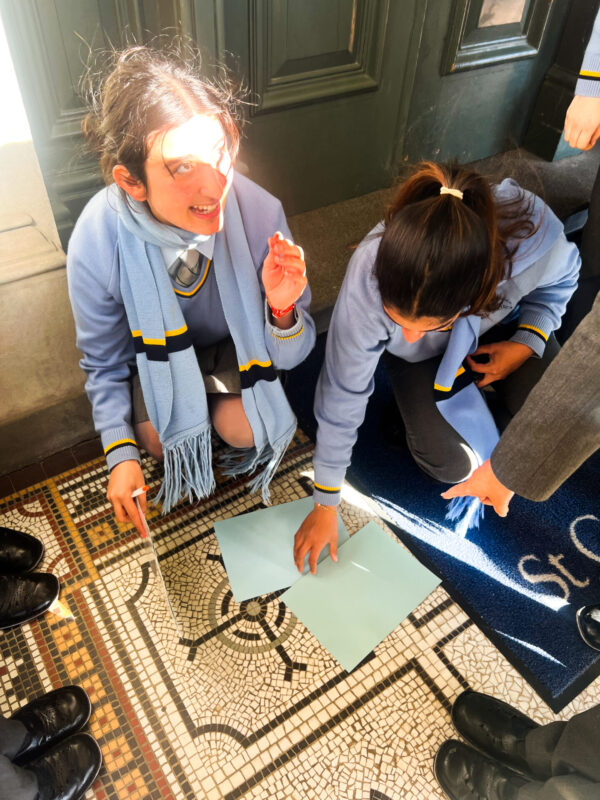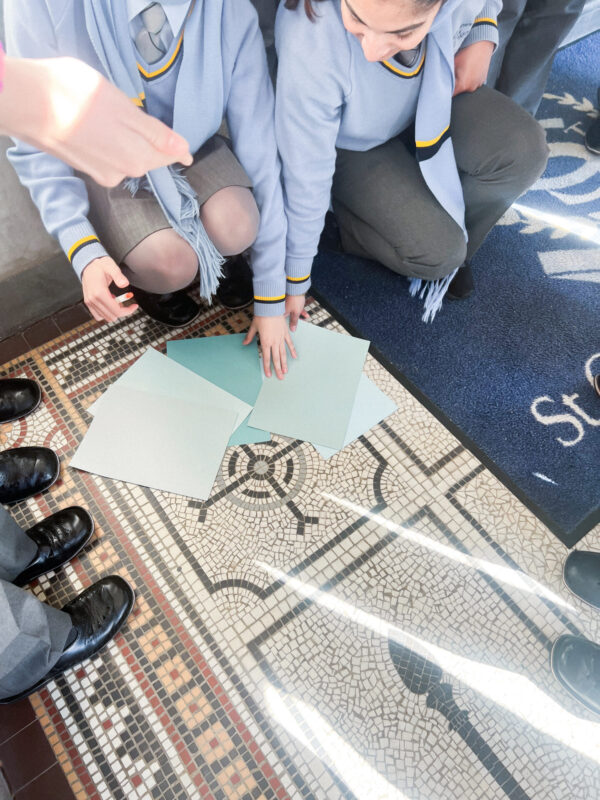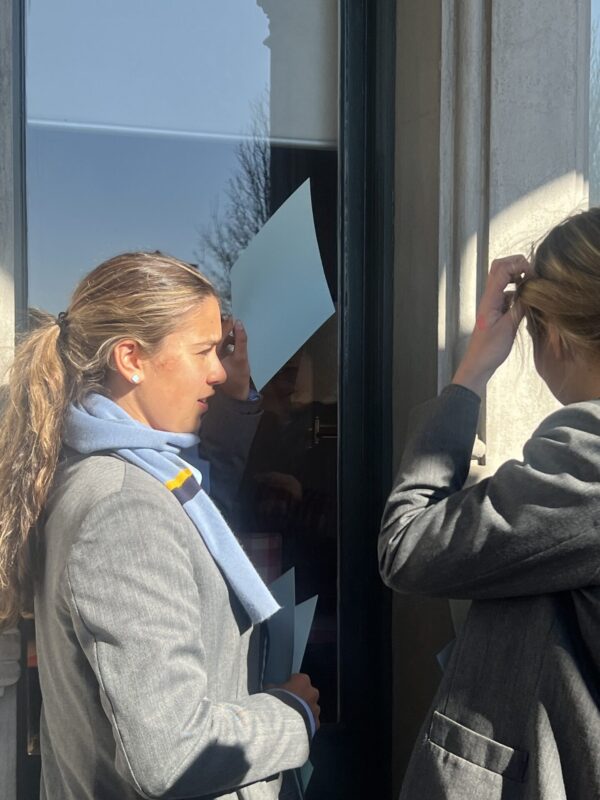The Girls’ School Advantage

With Mr James Brown, our Student VOICES Project Leader, currently on Long Service Leave, I have assumed the role of working alongside our School Co-Captains, Flora Du, and Ava Colosimo, to guide the Student Representative Council (SRC) in our Senior School.
The SRC consists of elected students from Years 7 to 12, with the primary objective to provide the student cohort with an avenue for active expression and agency within our School community. The main focus of the SRC is to empower girls by providing them with opportunities to offer valuable feedback and take on responsibilities.
During this week, the SRC organised a Winter Series of lunchtime activities aimed at fostering connections amongst students from different Year levels. Additionally, they provided feedback on the design elements of the 2024 Student Diary and took great pleasure in being involved in the selection of colour for the upcoming painting of window and door trims at Sherren House.
-

Student leaders assisting with paint colours for Sherren House restoration
-

Student leaders assisting with paint colours for Sherren House restoration
-

Student leaders assisting with paint colours for Sherren House restoration
-

Student leaders assisting with paint colours for Sherren House restoration
-

Student leaders assisting with paint colours for Sherren House restoration
At St Catherine’s, our Student Representative Council (SRC) holds immense value and provides students with opportunities to find their voices, enabling them to express their opinions, concerns, and aspirations. Cultivating this sentiment carries forward into every St Catherine’s classroom and is specifically targeted in our Year 9 Humanities Program. The Critical Conversations Program adopts a Harkness-inspired format designed to elevate the communication, collaboration, and problem-solving skills of our girls, and ultimately prepare them for future leadership roles in various spheres of life.
This notion of ‘finding her voice,’ was given even greater clarity when I read research provided through the International Coalition of Girls’ Schools. The topic of the research focused on female students who identify as feeling less confident sharing minority views in co-educational environments.
“Research from global analytics company, Gallup, has found that female university students are less likely than male students to feel comfortable sharing their views in a classroom when they perceive that their views may conflict with the opinions of their peers. In a co-educational environment, this can mean that young women are less confident to share their minority views in front of male students. So, despite young women now forming a majority of students on American university campuses, Gallup says there is a gender gap in how young women interact in the classroom.”
In response to the Gallup findings, Julie Park, Associate Professor of Education at the University of Maryland, told Inside Higher Ed Magazine that she was not surprised that some female students do not feel comfortable speaking out in the classroom, given the current issues of ‘climate,’ stating that, “There may be environments where male students try to dominate the conversation. Ideally, we’d like to see all of our students feeling comfortable to speak up, but because of issues of inequality, that might not always be the case.”
The Gallup study sought to verify how comfortable students feel about expressing themselves in the classroom. The company surveyed more than 5,100 recent graduates who earned bachelor’s degrees between 2010 and 2018. Graduates were asked to identify, on a five-point scale, whether they felt comfortable sharing ideas or opinions in their university classroom that they believed were held by a minority of people.
The results showed that 58% of female graduates agreed, or strongly agreed, that they felt comfortable sharing a minority opinion, compared with almost 70% of males. At the other end of the scale, 17% of females and 8% of males agreed or strongly agreed that they felt uncomfortable sharing minority opinions.
These findings are consistent with previous research showing that females are less likely than males to ask questions during academic seminars. This “gap in comfort” means that the university experience of many females is undermined because they are reluctant to share their opinions.
In our Year 9 Critical Conversations Program, learning through a Harkness-inspired method stimulates critical thinking as a routine to draw out ideas with reasoning and logic. The goal is for students to solidify their knowledge of the case by thinking critically under pressure. It also works to reduce the passivity of students within the classroom setting, with students undertaking an increased level of pre-reading in readiness for each lesson.
Such teaching practice has encouraged girls to consider others’ opinions and build the confidence of all students to respond in class, to find their voice, and respect the diversity of views of others.
This research speaks volumes for the benefit of an all-girls’ education and the distinct advantage of an all-girl environment. At St Catherine’s such gender issues are acknowledged by our teaching staff with effective strategies enacted and embedded within the School culture and classrooms. For example, a focus on encouraging girls’ natural strengths or talents, whether its Mathematics, Soccer, Chess, or Music is always prevalent. When girls feel confident, it acts as a touchstone to build confidence in other areas of their lives.
A school climate that allows girls to speak out, speak often and feel comfortable in doing so is vital to the overall health of classroom culture. It is considered a priority in developing our confident, capable, and happy students.
With my SRC opportunity this term, I hope to also build a vital link between our student body with teachers and the Senior Leadership Team. I am very much looking forward to the constructive dialogue, allowing students to collaborate with the aim to instil a sense of ownership and investment in our School environment, nurturing a positive and conducive atmosphere for personal and academic growth.


